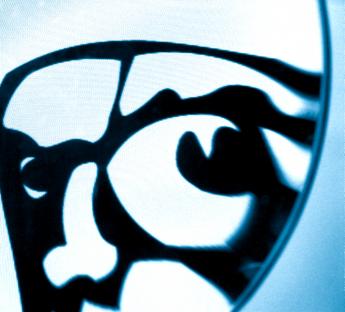Online Privacy: What's Your Price?
According to an article entitled "Spyware on My Machine? So What?" in Wired News on December 6, not everyone is as worried about spyware as we might think. It appears that some people's online privacy is for sale, or is at least for short-term rent.

Perhaps it's the term itself - "spyware" - that is so emotive. It certainly conjures up images of intrusion, subterfuge, invasion of personal privacy (see Wikipedia and Webopedia definitions).
But if you are given something in exchange for your personal data, and you are fully aware of the bargain you are getting involved in, is spyware really that different from any other form of paid-for consumer market research?
Extracts from the Wired News article:
"Typically the assumption has been that spyware sneaks onto computers, or users are unaware of what they have agreed to install," said Gregg Mastoras, a senior security analyst at antivirus vendor Sophos. "But some people actually do knowingly install adware because they want to use a particular application that comes bundled with it. Some just aren't particularly concerned by adware's presence on their computers."
IMesh, maker of a popular file-sharing application, recently began bundling an application called Marketscore. Some would view Marketscore as a privacy nightmare: The program routes all of a user's web traffic through Marketscore's own servers, where it is then analyzed to "create research reports on internet trends and e-commerce activities," according to Marketscore.
Even data entered on secure websites -- such as passwords, credit card numbers and bank account numbers, information that is supposed to be viewable only by the sender and the intended recipient -- is accessible to Marketscore, since the company has developed a method that allows it to view encrypted information.
But some users of iMesh didn't seem to be troubled by the actions of Marketscore. Users at iMesh forums chided those who complained, posting messages stating that "without spyware there's no such thing as free software."
Marketscore, for its part, insists that its application is neither spyware nor even adware. Security experts generally classify spyware as software that installs itself without a user's permission and doesn't clearly or honestly tell users what personal information it is gathering and how it is using it. Adware performs many -- if not all -- of the same functions as spyware, but alerts users to its presence and intentions.
In a statement Marketscore said, "Our processes and procedures are not done in secret -- instead, we strive to fully inform potential panel members of the work we do and the way in which we do it. We are committed to describing what information we collect about our panelists and their internet usage, how we collect this information, the steps that we take to protect the information provided to us and the use we make of this information."
Marketscore offers a free "Internet Accelerator" that the company says speeds up downloads by up to 100 percent, along with a free e-mail virus-protection service that uses Symantec's CarrierScan Server antivirus technology. (Marketscore prominently displays a "Powered by Symantec" logo on its website).
When users sign up for the antivirus service, they agree to have all their e-mails routed through Marketscore servers so that the messages can be scanned for viruses.
According to its privacy policy, Marketscore also monitors users' online behavior by "routing your internet activities through our service and logging information about the web pages that you visit and the actions that you take, such as the purchases and transactions you make, the pace and style with which you enter information online and request web pages, including whether you click on links, type in web-page names or use shortcut keys."
While no one knows the percentage of computers that run spyware installed with the user's permission, research firm IDC recently reported that 67 percent of all computers are infected with some form of spyware.
"I wonder if people have simply given up any notion of privacy," said Budapest-based security consultant Yanos Kovas. "In Hungary, many people who grew up under communist rule came to accept government interference in every aspect of their lives as inescapable. They were too tired to fight anymore, so they convinced themselves that communism was OK and even a benefit."
"I think some internet users are exhausted by security threats and privacy leaks and are beginning to decide to believe that spyware is necessary for the greater good. If your personal information isn't private anyway, if businesses and governments are trading it at will, then why not give a little more away and get some free software too?"
If you were given free use of a highly desirable and costly electronic gadget for 6 months in exchange for the remote, automatic collection of data on when, how and with (or to) whom you used it, would you be tempted...?
Reference: [via Slashdot] [ Read more ]

blog comments powered by Disqus